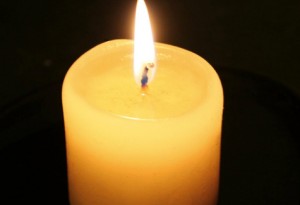In the Dark, Remember, Grace Will Come!
 Charles de Foucauld was a dandy, a fop, or perhaps an epicure. Having lost his faith as a young teen, he learned to enjoy the good things in life and did all he could to continue to enjoy them. Even amidst a military career, in which he performed quite daring exploits, he still loved to taste the good things of life, and to spend his free time in dissipation. When he was in his twenties, he knew that he wanted to believe, and it was thus that he prayed “My God, if you exist, let me come to know you.”
Charles de Foucauld was a dandy, a fop, or perhaps an epicure. Having lost his faith as a young teen, he learned to enjoy the good things in life and did all he could to continue to enjoy them. Even amidst a military career, in which he performed quite daring exploits, he still loved to taste the good things of life, and to spend his free time in dissipation. When he was in his twenties, he knew that he wanted to believe, and it was thus that he prayed “My God, if you exist, let me come to know you.”
At age 28, while staying with a devout Catholic family, Charles de Foucauld came back to the Church, rediscovering his relationship with Jesus. He found a religious vocation, and was ordained a priest at age 43. He discerned that his calling would be the eremitic life, living in isolation from others in order to pray for the salvation of the world. To do this, he abandoned any trappings of European Civilization and moved to the Sahara, in far southern Algeria. He lived in hope that the wild peoples he encountered there would find in him a “universal brother,” a brother in Christ, that his loving example would move others to come to know Him who was the source of Charles’ priesthood.
Eventually, though, in December of 1916, marauders burst upon Fr. Charles while he was at prayer in his chapel and took his life. The Early Christian author Tertullian wrote that “the blood of martyrs is the seed of Christians.” Indeed, it is said that although Fr. de Foucauld knew very few converts during his life in the Sahara, there were many converts to the faith in that region in the years after his death.
December is a time of many emotions. The first falls of snow can bring a peacefulness to the evening. The first blasts of cold wind can make us recoil with trepidation over the coming months of cold. We penitentially keep the season of Advent, while we prepare with quiet and busy joy to celebrate the birth of the Savior at Christmas. Many of us look ahead with some fear, or at least nervousness, to family celebrations, in which we may encounter loved ones whom we are more comfortable keeping at an arm’s length. As we look ahead to the “Auld Lang Syne” of New Years Eve, many of us begin to reevaluate the past year, and how we have influenced, for good or ill, those around us, those for whom, perhaps, we have some responsibility. We may ask ourselves if our Christian example has served to bring others to Christ. Our hard work, our sacrifices, might seem to have come to nothing.
Looking at the life and death of Charles de Foucauld only with the eyes of the world, we might think, “what a waste.” Even acknowledging the personal victories of the martyrs, and their gaining eternal life with Jesus by their dying for Him, we might also, with the eyes of the world, be tempted to think that there was no meaning in their deaths. Looking at our own relatives and friends, who go on making the same mistakes despite our prayers for them and our efforts to be good examples to them, we might also be tempted to think that these prayers have been in vain, that these penances have been wasted.
There is meaning, though, in every grace filled action we carry out. As a Christian, every time we carry out some good act, or bear some wrong patiently, God showers grace upon the world. Even if we don’t see the supernatural results of our prayers, example and sufferings, God is preparing the increase — whether this will be now or later, we do not know.
During Advent, many families begin to prepare Nativity Scenes in their homes. Some families, in order to teach their children the great benefits of our Christian efforts, have a custom by which, each time the children carry out some work of Christian service around the home, they get to place one piece of straw in the manger, near or in the Christmas Crib. Day by day the amount of straw increases, so that when Christmas comes, the children of the house have a visible sign, a manger full of straw, and they know that they have prepared their home and their hearts to welcome the newborn Savior.
We adult Christians sometimes have a visible sign from our Lord that our prayers and sacrifices have had an effect, and this can be a great consolation to us. More often than not, though, we are not like children seeing the benefits of our good works as pieces of straw in the Christmas crib. Instead, seeing the world through the eyes of faith, we have great hope that our acts will be crowned by Our Lord, whether at present, in the future, or even long after we have gone. God crowns our actions, actions which he enables us to carry out, with His glorious graces.
May Our Lord bless you this Advent, as you prepare your hearts to welcome Him at Christmas!

